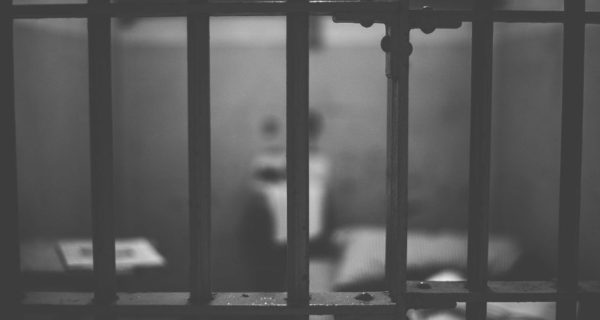“I was in prison…and you came to see me.” ~ Saint Matthew 25: 34-26
Dostoyevsky is possibly the best writer of narratives of redemption, probably because of his time in prison. I first read The House of the Dead along with his other novels some years ago. Recently I was “guilted” by Fr. Ron (I did not want to go) into volunteering at prison, which in the event, has proven to be one of the few experiences in my life in which I felt – one cannot know, of course – that I was doing exactly what God expected of me. This volunteer work with the chaplain, a sturdy Baptist, and with wise and experienced volunteers and mentors, especially Al and George, led me to re-read Dostoyevsky’s semi-autobiographical prison novel.
As a young man, Dostoyevsky was drawn into the Petrashevsky Circle in Saint Petersburg, which may or may not have planned the violent overthrow of the government. The group was arrested in1849, held in the Peter and Paul Fortress in Saint Petersburg, tried, and sentenced to death. The Czar’s pardon of the conspirators even as they faced a firing party is well known.
Dostoyevsky spent four years in a Siberian prison camp and then a term as a soldier until he was permitted to return to Saint Petersburg in 1859.
The parallels in the unit I visit and Dostoyevsky’s prison are remarkable, even to the general layout of the prison and to the diverse characters and nationalities of the images. In the local prison, though, prisoners are respected and treated with dignity in preparation for their return to freedom. Successful completion of anger management and other counselling programs are mandatory for release.
But please note than I know almost nothing about penology or psychology, and my two hours each week visiting the lads are as nothing. I am neither a Pollyanna nor a Darwinian, but only a sympathetic, if naïve, observer.
First, about that famous cable tv: there are in fact two of them, rather small, high up on a wall in the common area, and remotely controlled by the duty officer. No prisoner has much time for watching tv, though, for everyone has a work detail. A man might be dozing on his bunk in the early evening, but that’s because his work assignment begins in the kitchen at 03:00 and he must also attend classes. There are no private rooms; all live-in dorms that very much resemble my recruit training barracks in the long-ago.
Prisons do not exist so that visitors like me can write sappy articles about “What I learned in prison” because prison is about the prisoner, about helping him learn about himself and his place in civilization. Dostoyevsky would say that learning is a part of a man’s redemption, on either side of the shiny wire.
But I have learned this: the difference between a man behind the wire and a man outside the wire is often only that one man is behind the wire and the other is outside the wire.
Okay, that’s a bit precious, but the reality is that there are far more criminals on the outside than on the inside.
Another reality in the unit I visit is the diversity of individuals with regard to faith traditions, race, intellect, accomplishments, education, and skills. I have met once-wealthy businessmen who admitted that their success in life led them to a feeling of arrogance and immunity. I have met twenty-somethings who did stupid stuff because popular culture and their local subcultures led them to existential despair. The CPA is in a bunk next to the low-level drug dealer. Someone conversant in seven languages and who holds a master’s degree is bunked next to the kid who helped himself to someone else’s car on a dare.
- S. Lewis wrote in his autobiography, Surprised by Joy, that in the army, “Every few days one seemed to meet a scholar, an original, a poet, a cheery buffoon, or at the least a man of good will.” And so, it is in prison as it is in the army or on the job.
My prison is a transit unit, with folks coming and going constantly, either on their way to a long-term sentence at one of the large units, serving a short sentence here, or, happily, cycling through the various programs and consultations in preparation for release. I regret that I seldom get to know anyone very well but in the context of the mission that’s probably for the best.
Unfortunately, all prison visits in my state are now forbidden during the coronavirus time. I do miss the guys and hope I have been of some small service in their rehabilitation. I pray for them daily and hope to be permitted to resume working with them soon.
http://www.encspb.ru/object/2804022508;jsessionid=777C33E31108B724645FFEDA4512B4CF?lc=en
https://www.newyorker.com/magazine/1997/02/24/dostoyevskys-unabomber
